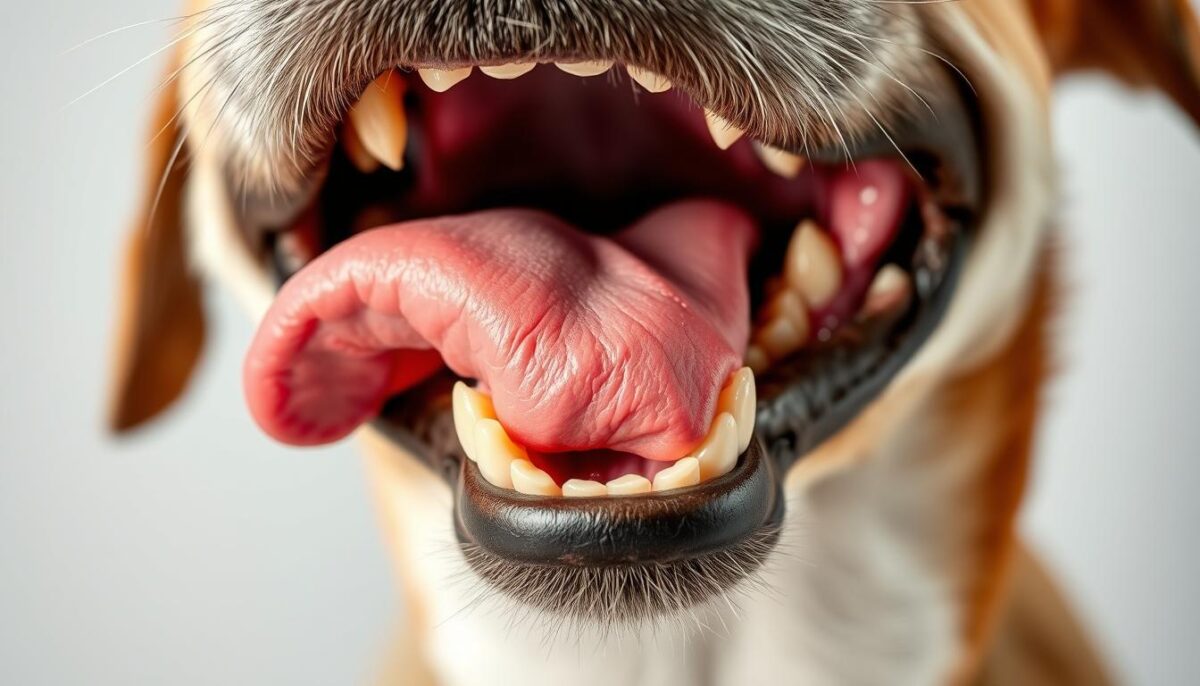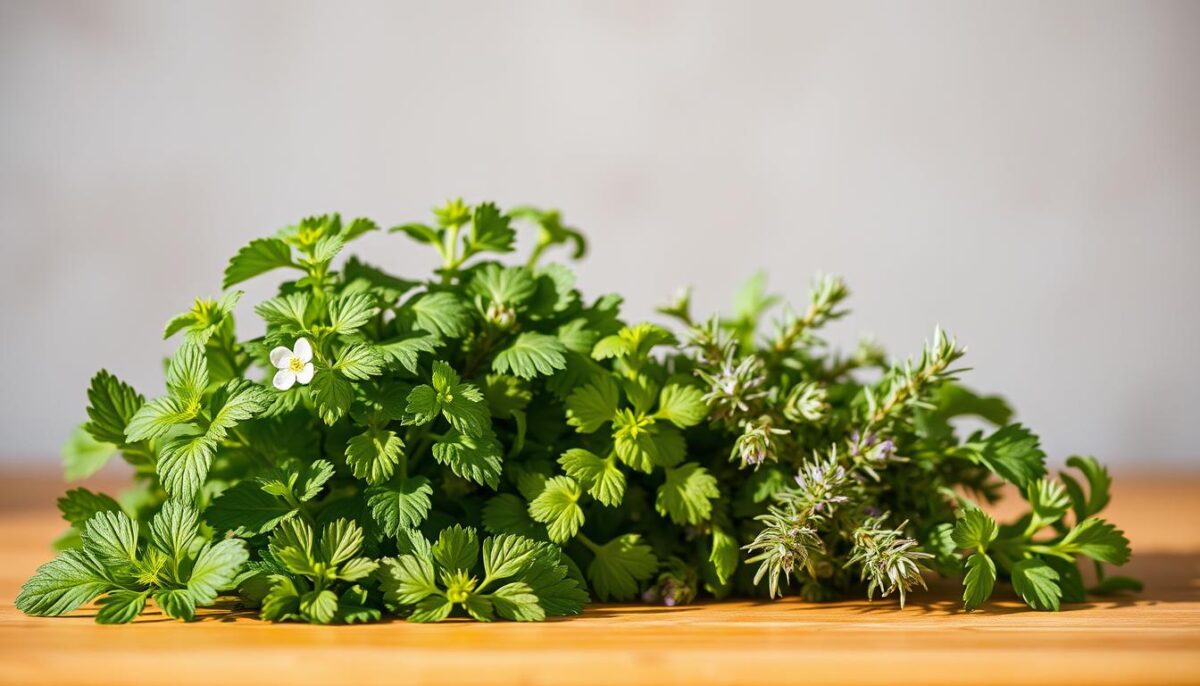
Why Does My Dog Hump Everything? Causes and Quick Solutions
May 16, 2025
Why Is My Cat Pooping or Peeing Outside the Litter Box? 9 Common Reasons and How to Fix Them
May 19, 20257 Home Remedies to Get Rid of Dog Bad Breath Naturally (Vet-Approved Tips)
If you own a dog, you might have seen dog bad breath before. It’s not just embarrassing. It can also mean there’s a health problem. Luckily, there are natural ways to fix this.
I’ll share 7 vet-approved tips to help your dog’s bad breath. These methods help keep your dog’s mouth healthy and reduce bad breath bacteria. Adding these easy steps to your dog’s routine can keep their breath fresh and their health good.
Key Takeaways
- Simple, natural methods can help eliminate dog bad breath.
- Vet-approved remedies ensure safety and effectiveness.
- Maintaining your dog’s oral health is crucial for their overall well-being.
- Bad breath in dogs can be a sign of underlying health issues.
- Regular care and attention can prevent bad breath.
Why Your Dog’s Breath Smells Bad: Causes and Concerns
Bad breath in dogs is more than just a nuisance; it can indicate serious health concerns. As a responsible dog owner, it’s essential to understand the causes behind your dog’s halitosis and address them promptly.

Common Causes of Halitosis in Dogs
Several factors contribute to bad breath in dogs, including poor oral hygiene, gum disease, and dietary habits. Food particles stuck in teeth can decay and cause bad breath. Additionally, gum disease is a common issue in dogs, leading to inflammation and bad breath.
When Bad Breath Signals Serious Health Problems
In some cases, bad breath can be a sign of more serious health issues, such as kidney disease, diabetes, or gastrointestinal problems. If your dog’s bad breath is accompanied by other symptoms like vomiting, diarrhea, or lethargy, it’s crucial to consult with a veterinarian.
The Importance of Addressing Bad Breath Early
Addressing bad breath early on can prevent more severe health problems from developing. Regular dental care, a balanced diet, and vet-approved tips can help maintain your dog’s oral health. By taking proactive steps, you can ensure your dog’s overall well-being and fresh breath.
Some key strategies for maintaining your dog’s oral health include:
- Regular brushing of teeth
- Providing dental chews or toys
- Feeding a balanced diet
- Scheduling regular veterinary check-ups
By following these tips, you can help prevent bad breath and ensure your dog’s overall health.
7 Home Remedies to Get Rid of Dog Bad Breath Naturally (Vet-Approved Tips)
Dealing with your dog’s bad breath can be tough. But, there are vet-approved home remedies that can help. Bad breath in dogs might mean there’s a health issue. Luckily, natural remedies can help fix this problem.
The Science Behind Natural Breath Fresheners
Natural breath fresheners target the causes of bad breath. This includes bacteria and gum disease. Some herbs kill bacteria in your dog’s mouth.
Coconut oil and apple cider vinegar also fight bacteria. They are good against the bacteria that cause bad breath.

When to Try Home Remedies vs. Seeking Veterinary Care
Home remedies are great, but know when to see a vet. If bad breath doesn’t go away or your dog acts tired or doesn’t want to eat, see a vet. Use home remedies to help or as a first step.
How to Safely Implement These Remedies in Your Routine
Start by adding small amounts of coconut oil to your dog’s food. Or use a dog-safe mouthwash. Watch how your dog reacts to new things to keep them safe.
| Remedy | Benefits | Precautions |
|---|---|---|
| Coconut Oil | Antimicrobial properties | High in fat; use in moderation |
| Apple Cider Vinegar | Balances oral pH | Dilute with water; avoid if dog has kidney disease |
| Fresh Herbs | Natural breath fresheners | Some herbs can be toxic; use dog-safe herbs only |
Remedy #1: Coconut Oil for Fresher Canine Breath
Coconut oil is a popular choice for dog bad breath. It has antimicrobial properties. You can use it in many ways to keep your dog’s mouth healthy.
How Coconut Oil Combats Oral Bacteria
Coconut oil has lauric acid, which fights bacteria and fungi. It helps reduce bacteria that cause bad breath. This oil not only makes breath fresh but also improves oral health.
Key Benefits of Coconut Oil:
- Antimicrobial properties to reduce oral bacteria
- Natural and safe for regular use
- Can be used in various application methods
Application Methods and Proper Dosage
You can use coconut oil in different ways. Add a small amount to your dog’s food or mix it with toothpaste. Rub a bit on their teeth and gums. The right amount depends on your dog’s size.
| Dog Size | Coconut Oil Dosage |
|---|---|
| Small (under 20 lbs) | 1/4 teaspoon |
| Medium (21-50 lbs) | 1/2 teaspoon |
| Large (51-80 lbs) | 3/4 teaspoon |
| Extra Large (over 80 lbs) | 1 teaspoon |
Precautions and Considerations for Different Dog Sizes
Coconut oil is usually safe, but start slow to avoid upset stomach. Small dogs should start with a tiny amount. Always talk to your vet before changing your dog’s oral care.

Adding coconut oil to your dog’s care can help their breath and health.
Remedy #2: Fresh Herbs as Natural Breath Fresheners
Fresh herbs like parsley, mint, and cilantro are great for dogs. They can make your dog’s breath smell better. These herbs are good for people and dogs.
Best Herbs for Dog Breath: Parsley, Mint, and Cilantro
Parsley, mint, and cilantro are top picks for dog breath. Parsley has chlorophyll to fight smells. Mint tastes fresh and fights bacteria. Cilantro kills bacteria that cause bad breath.

Safe Ways to Incorporate Herbs into Your Dog’s Diet
Start by chopping herbs finely and mixing them with food. You can also make a tea. Cool it before adding it to their meals. Always add herbs slowly to avoid upset stomachs.
| Herb | Benefits | Precautions |
|---|---|---|
| Parsley | Rich in chlorophyll, neutralizes odors | Use in moderation to avoid digestive issues |
| Mint | Combats bacteria, freshens breath | Some dogs may not like the taste; introduce gradually |
| Cilantro | Antibacterial properties | Use in small amounts to avoid upsetting stomach |
Growing a Pet-Friendly Herb Garden at Home
Starting an herb garden is fun and rewarding. It gives you fresh herbs for you and your dog. Choose a spot where your dog can safely eat the herbs. Parsley, mint, and cilantro are easy to grow and like many conditions.
Remedy #3: Apple Cider Vinegar for Oral Health
Apple cider vinegar is good for dogs’ mouths. It fights bad breath. Many dog owners use it to help their pets.
Apple cider vinegar is known for its health benefits. It’s great for dogs too. Its antimicrobial properties help with mouth problems.
The Antimicrobial Properties of ACV for Dogs
Apple cider vinegar fights off bad breath bacteria. It’s a natural way to keep dogs’ mouths fresh. This can help stop bad breath.
Proper Dilution Ratios and Administration Methods
It’s important to mix apple cider vinegar right. Use 1 teaspoon for every 20 pounds of dog. But, always check with a vet first.
| Dog Weight (lbs) | ACV Dosage (tsp) |
|---|---|
| 20 | 1 |
| 40 | 2 |
| 60 | 3 |
Potential Side Effects and Dogs Who Should Avoid ACV
Apple cider vinegar isn’t for every dog. Dogs with stomach problems might not do well. Watch how your dog reacts and stop if needed.
Knowing the good and bad of apple cider vinegar helps dog owners. Always talk to a vet before trying new things for your dog.
Remedy #4: Probiotics and Plain Yogurt for Gut-Related Breath Issues
Gut health is key for your dog’s mouth. Probiotics and plain yogurt can help a lot. They keep the gut and mouth balanced, which is good for fresh breath.
Understanding the Gut-Breath Connection in Dogs
The gut and mouth are linked. An imbalance in gut bacteria can cause bad breath. Probiotics are good bacteria that help the gut. They can help reduce bad breath.
Dogs with mouth problems often have gut imbalances. Fixing this can help with bad breath. But, probiotics are just part of keeping your dog healthy.
Selecting Dog-Appropriate Probiotic Supplements
Choose probiotics made for dogs. Look for Lactobacillus and Bifidobacterium strains. Always talk to your vet before starting any new supplements.
- Check the label for dog-specific formulations.
- Ensure the product contains multiple beneficial strains.
- Follow the manufacturer’s dosage instructions.
Yogurt Serving Suggestions and Frequency Guidelines
Plain, unflavored yogurt is good for dogs. It can help their gut. Start with a small amount, like 1 teaspoon per 10 pounds of body weight.
Some tips for yogurt include:
- Choose plain, unflavored yogurt to avoid added sugars.
- Begin with small amounts to monitor for any adverse reactions.
- Mix it with their food for easier digestion.
Adding probiotics and yogurt to your dog’s routine can help with bad breath.
Remedy #5: Natural Dental Chews and Raw Bones
Using natural dental chews and raw bones can help get rid of dog bad breath. These tools clean teeth and help make saliva. Saliva has special powers that fight off bad bacteria.
How Mechanical Chewing Naturally Cleans Teeth
Dogs chewing on dental chews and bones clean their teeth. This action removes plaque and tartar, which cause bad breath. It’s like a natural cleaning for their teeth.
“Chewing on raw bones can be very beneficial for dogs, helping to keep their teeth clean and their jaws strong.” – Dr. Karen Becker, DVM
Selecting Safe, Effective Chews for Different Breeds
Choosing the right dental chews or bones is important. It depends on your dog’s size, breed, and how they chew. Big dogs need big, hard chews, and small dogs need small, soft ones. Always watch your dog while they chew to keep them safe.
| Breed Size | Recommended Chew Type | Supervision Level |
|---|---|---|
| Small Breeds | Soft, small dental chews | High |
| Medium Breeds | Medium-sized dental chews or raw bones | Medium |
| Large Breeds | Hard, large dental chews or raw bones | Low to Medium |
Supervision Tips and Safety Precautions
Always watch your dog when they chew on dental chews or bones. Look for signs of wear and replace them if needed. Also, watch for any signs of discomfort or digestive problems.
Adding natural dental chews and raw bones to your dog’s routine can keep their breath fresh. It also helps keep their teeth healthy, which is good for their overall health.
Remedy #6: DIY Water Additives and Homemade Mouth Rinses
DIY water additives and homemade mouth rinses are great for dog bad breath. They are easy to add to your dog’s daily care. They keep your dog’s mouth fresh and healthy without harsh chemicals.
Natural Ingredients That Effectively Freshen Breath
Many natural ingredients can help freshen your dog’s breath. Coconut oil fights mouth bacteria. Parsley and mint make breath smell fresh.
Apple cider vinegar helps keep the mouth pH balanced. This stops bacteria from growing. But, use these ingredients carefully to avoid harm.
Step-by-Step Recipes for Homemade Mouth Rinses
Making homemade mouth rinses is easy. Mix 1 cup water with 1 tablespoon apple cider vinegar and parsley. Let it sit for a few hours, then strain and use.
For another rinse, mix coconut oil with peppermint essential oil. Start with a little and watch for any signs of discomfort.
- Mix 1/2 cup coconut oil with 10 drops peppermint essential oil.
- Put the mix in a glass jar and use a bit as needed.
Implementation Strategies for Reluctant Dogs
Introduce new oral care slowly to hesitant dogs. Start by adding a little to their water. Gradually add more.
For rinses, let your dog get used to the taste and smell first. Make it a positive experience with praise and treats.
Remedy #7: Brushing with Dog-Safe Natural Toothpaste
Brushing your dog’s teeth is key to their oral health. It cuts down on bad breath and stops bigger dental problems. Among natural ways to freshen your dog’s breath, brushing with the right toothpaste is a top choice.
Making Your Own Natural Dog Toothpaste
Making your own dog toothpaste is fun and rewarding. You can pick safe and healthy ingredients for your dog. A simple mix is coconut oil, baking soda, and parsley.
Coconut oil fights oral bacteria. Baking soda cleans teeth gently. Parsley makes breath fresh.
To make it, blend 1/2 cup coconut oil, 2 tablespoons baking soda, and parsley in a blender. Blend until smooth. Store in an airtight container and use for a few weeks.
The Proper Brushing Technique: A Step-by-Step Guide
Brushing your dog’s teeth needs patience and care. First, get your dog used to having their mouth touched. Then, introduce the toothbrush and toothpaste slowly, with praise and treats.
- Start by lifting your dog’s lip and gently rubbing the toothbrush against their teeth in a circular motion.
- Focus on the areas where the teeth and gums meet, as this is where plaque and tartar tend to accumulate.
- Be sure to brush all surfaces, including the back sides of the teeth.
- Keep the sessions short initially and gradually increase the duration as your dog becomes more comfortable.
Establishing a Regular Brushing Routine Your Dog Will Accept
Creating a regular brushing routine takes time and effort. Start with a few times a week and aim for daily brushing. Use different toothpastes or flavors to keep it fun for your dog.
Choosing the right toothbrush is also important. Finger brushes or soft-bristled brushes made for dogs work well. Some dogs like finger brushes, while others prefer regular toothbrushes.
Conclusion: Maintaining Your Dog’s Fresh Breath Long-Term
Keeping your dog’s mouth healthy is key for their happiness. This article shared seven easy ways to help. These include using coconut oil, fresh herbs, and apple cider vinegar.
Adding probiotics, natural dental chews, and DIY water additives can also help. Brushing their teeth with safe toothpaste is another good step.
Using these tips can stop bad breath and keep your dog’s mouth clean. But, always talk to your vet before trying new things. This makes sure they’re safe for your dog.
Going to the vet regularly and brushing your dog’s teeth often is important. A healthy diet and lifestyle also help. Together, these steps keep your dog’s breath smelling good and their mouth healthy.
FAQ
What are the most common causes of bad breath in dogs?
How can I naturally freshen my dog’s breath at home?
Are home remedies for dog bad breath vet-approved?
Can I use human toothpaste to brush my dog’s teeth?
How often should I brush my dog’s teeth to prevent bad breath?
Can diet affect my dog’s breath?
Are there any health issues that can cause bad breath in dogs?
How can I safely introduce new remedies to my dog’s oral care routine?
If you’re looking to learn more about embarrassing pet problems such as inappropriate urination, poop-eating, or odd behavior, these trusted blog articles offer expert insights and helpful solutions:




